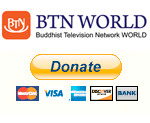
|
|
|
Home Asia Pacific North Asia S/N Korea News & Issues Buddhist temples, 'seowon' to go globalBy Na Jeong-ju, The Korea Times, Apr 10, 2011Seoul, South Korea -- President Lee Myung-bak called for overseas promotions of traditional Buddhist temples and “seowon,” the most common educational institutions during the Joseon Kingdom (1392-1910), Friday, to help foreigners better understand the country’s culture and customs.
“We must find effective communication tools from our rich cultural heritage. Foreigners can experience the essence of our culture at traditional temples and seowon,” Lee said during a meeting of the Presidential Council on Nation Branding at Cheong Wa Dae. “Temples demonstrate the country’s Buddhist culture while the seowon show Confucian values. We need to share such cultural assets with foreigners and make more efforts to preserve them.”
Seowon were private institutions that combined the functions of a Confucian shrine and a preparatory school. The chairwoman said Korea’s culture and history is largely unknown worldwide despite its past economic achievements, making it difficult to achieve the desired results from its recent vigorous promotional activities overseas. “Economic development is an integral part in improving a country’s image and reputation. What really matters to make Korea a respected nation is culture and education. We need to strengthen cultural exchanges to make foreigners better understand us,” Lee said. She pledged to continue the council’s global outreach programs initiated by its former head Euh Yoon-dae, now chairman of KB Financial Group. The branding council was created in January last year to reorganize Korea’s existing overseas PR activities and create a better image abroad for Korean culture and products. Some of its key projects include expanding exchange programs with underdeveloped countries in line with Seoul’s plan to increase development aid, developing programs for multicultural families here, strengthening the education of globally accepted norms and etiquette among citizens, and globalizing Korean food and language. |
 |
|
| Korean Buddhist News from BTN (Korean Language) |
|
 |
|
|
Please help keep the Buddhist Channel going |
|
| Point
your feed reader to this location |
|

 << President Lee Myung-bak listens to Chairwoman Lee Bae-yong of the Presidential Council on Nation Branding speak about the council’s global outreach programs at a meeting at Cheong Wa Dae, Friday.
<< President Lee Myung-bak listens to Chairwoman Lee Bae-yong of the Presidential Council on Nation Branding speak about the council’s global outreach programs at a meeting at Cheong Wa Dae, Friday.

